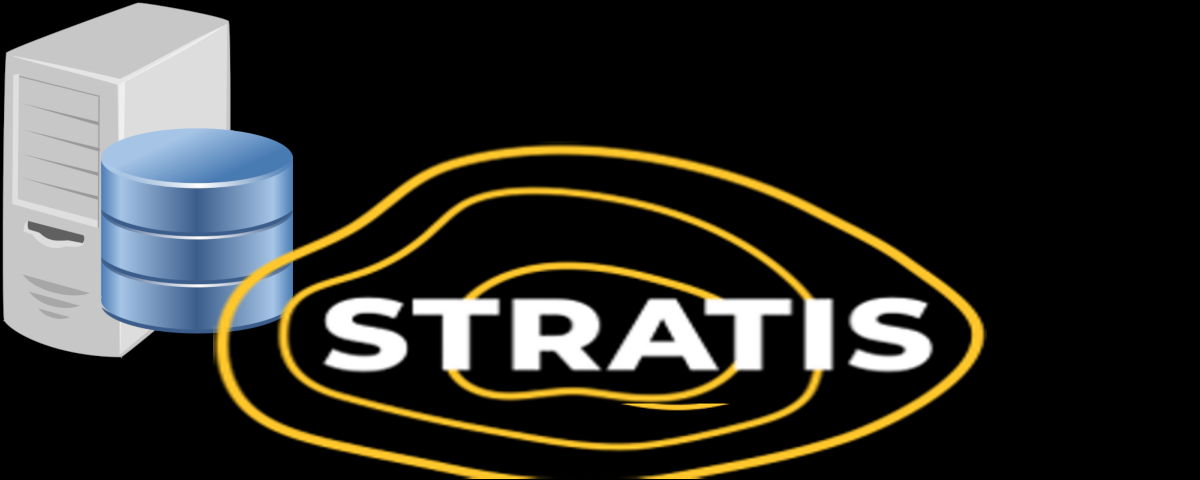
Recently the release of the new version of the Stratis 3.1 project was announced, developed by Red Hat and the Fedora community to unify and simplify the tools for configuring and managing a group of one or more local disks.
The new Stratis 3.1.0 release includes significant enhancements to thin provisioning layer management, as well as a number of other user-visible enhancements and bug fixes.
For those unfamiliar with Stratis, you should know that excels in providing capabilities such as dynamic storage allocation, snapshots, consistency, and caching layers. Stratis support has been integrated into the Fedora and RHEL distributions since Fedora 28 and RHEL 8.2.
The system largely replicates in its capabilities the advanced tools for managing ZFS and Btrfs partitions, but is implemented as an intermediate layer (stratisd daemon) that runs on top of the Linux kernel's device mapping subsystem (dm-thin, dm-cache, dm-thinpool, dm-raid, and dm-integration modules) and XFS file system.
Unlike ZFS and Btrfs, Stratis components operate only in user space and they do not require loading of specific kernel modules. The project is initially presented as not requiring the qualifications of a storage expert for its management.
D-Bus API and cli utility are provided for administration. stratis has been tested with LUKS-based block devices (encrypted partitions), mdraid, dm-multipath, iSCSI, LVM logical volumes, and a variety of hard drives, SSDs, and NVMe drives. With one disk in the pool, Stratis allows you to use snapshot-enabled logical partitions to revert the changes.
When you add multiple drives to a group, you can logically combine the drives in a contiguous region. Features such as RAID, data compression, deduplication, and fault tolerance are not yet supported, but are planned for the future.
Main new features of Stratis 3.1
In this new version of Stratis 3.1.0 that is presented, the significantly improved management of the components that provide dynamic allocation of storage space ("thin provisioning").
The cli interface provides commands to allow you to specify whether or not a pool can be over-provisioned at creation time, as well as to allow you to change whether or not a pool can be over-provisioned while it is running, to allow you to increase the file system limit for a given pool and display whether or not a pool is over-provisioned in the pool list view.
In addition to this, it is also highlighted that debug subcommand added to commands for working with groups, file systems, and block devices to enable debug mode.
On the other hand, it is mentioned that this new version of Stratisd 3.1.0 also includes a series of internal improvements, of which the following stand out:
- The size of any newly created MDV increases to 512 MiB.
- A group's MDV is mounted in a private mount namespace and remains mounted while the group is up and running.
- Improved handling of udev events on device removal.
- The usual and usual improvements to log messages.
Finally if you want to know more about it about this new version, you can check the list of changes In the following link.
How to install Stratis?
For those who are interested in being able to try this tool, they should know that stratis is available for RHEL, CentOS, Fedora and derivatives. Its installation is quite simple, since the package is inside the RHEL repositories as well as its derivatives.
In order to install Stratis just run the following command in a terminal:
sudo dnf install stratis-cli stratisd -y
Or you can also try this other:
sudo yum install stratis-cli stratisd -y
Once installed on the system, must enable Stratis services, they do this by executing the following commands:
sudo systemctl start stratisd.service
sudo systemctl enable stratisd.service
sudo systemctl status stratisd.service
For more information on configuration and use, you can visit the following link. https://stratis-storage.github.io/howto/